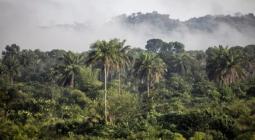Kenya, Saudi Arabia strike ‘voluntary’ carbon deal
Kenya and the Kingdom of Saudi Arabia have entered into a voluntary agreement on carbon credit deals to help the former tackle land degradation issues.
Speaking to Climate Action at the sixth session of the United Nations Environment Assembly (UNEA-6) in Gigiri, Nairobi, Dr Osama Faqeeha, Saudi Arabia’s deputy minister for Environment, Water and Agriculture, stated that Kenya is considered a strategic partner to Saudi Arabia.
But carbon offsetting has been a subject of controversy, with President William Ruto denying that the country had signed any carbon credit deals with a Dubai-based company last year. However, he admitted that discussions were underway.
Last November at the COP28 in Dubai, President Ruto stated that Kenya had not sold any land, including the Mau Forest, to any carbon credit company. However, human rights groups alleged that the government was illegally evicting the Ogiek community, who are hunter-gatherers, from their ancestral land, to benefit from carbon offsetting schemes.
The President was responding to reports that a Dubai-based company called Blue Carbon had signed a Framework of Collaboration (FOC) with Kenya's State Department of Environment and Climate Change. This agreement would allow the company to use millions of hectares of Kenya's land to produce carbon credits.
According to an official statement from Blue Carbon, the FOC was signed to demonstrate the company's commitment to support Kenya's readiness for Article 6 of the Paris Agreement. This involves generating carbon credits in the form of internationally Transferable Mitigation Outcomes (ITMOs) that align with national climate targets.
Before the agreement was signed, representatives from Kenya, including Augustine K. Kenduiwo, deputy director of Climate Change Mitigation, visited Blue Carbon's offices in the United Arab Emirates to discuss potential avenues of collaboration and opportunities.
Blue Carbon's $2 billion carbon offset market initiative allows polluters to buy credits from emission-reducing projects, mainly in forest conservation. However, climate finance expert Fadhel Kaboub regards carbon credits as false climate solutions “as they enable global north historic polluters to continue polluting while offering minimal climate finance”.
Dr Kaboub points out that he expects African leaders to state the facts. "Africa is owed a climate debt by the historic polluters. Climate reparations must be delivered in the form of debt cancellation (not debt restructuring), transfer of technology (not imported green technology), grants (not loans) for adaptation and economic resilience, and transformation of the global trade, finance and investment architecture," he said in an interview.
Asked about the role of carbon credit dealers in advancing Saudi Arabia's carbon credit interests, Dr Osama noted that the country and Aramco — a state-owned petroleum and natural gas company that is the national oil company of Saudi Arabi— have adopted the circular carbon economy framework to reduce their carbon footprints.
"What I can tell you is that there are many opportunities to collaborate in carbon credits with now a voluntary carbon market in Saudi Arabia. "It is a closed loop system involving 4Rs — reduce, reuse, recycle, and remove. Most economies discard raw materials as waste after use, but the circular economic system uses resources repeatedly, which has not been explored to full potential globally,” he said.
Saudi Arabia aims to have 50 percent of its energy mix from renewable and chemical sources by 2030, generating significant carbon credits. However, it is unclear why Saudi Arabia, a polymer producer, is partnering with Kenya to restore land while opposing global efforts to eliminate plastic pollution.
Last year, Intergovernmental Negotiating Committee (INC) discussions to establish an international plastics treaty ended with no solid plan due to opposition from oil-producing countries and major plastic manufacturers.
Major oil-producing countries including Saudi Arabia, Iran and Russia disagreed over the wording and punctuation of the zero-draft during INC-3, making it impossible to agree on the plastics treaty. They put brackets (requested to delete) on key words like polymer, single-use, production and chemical. Iran put more brackets than words on single-use, while China wanted everything deleted, and kept adding brackets.
"I don't want to reduce the global issue of land degradation to the dimension of plastics because there are two billion hectares of land already degraded on a global level. Let's focus on things like mining, improper agricultural practices, illegal logging and other things that cause land degradation," said Dr Osama.
'The degradation of fertile lands is at an alarming rate, jeopardising global stability, prosperity and sustainability," he told Climate Action. According to the United Nations, between 2015 and 2019, over 11.8 million square kilometres of land were degraded, equivalent to an average yearly loss of 650,000 square kilometres of healthy land.
"If land degradation continues at the present rate, nearly one billion hectares of healthy land could be lost by 2030, equivalent to the global total of country restoration commitments," Dr Osama warned, noting that more than 50 per cent of Africa's GDP depends on land.
Cover photo: EVANS HABIL| NATION MEDIA GROUP





